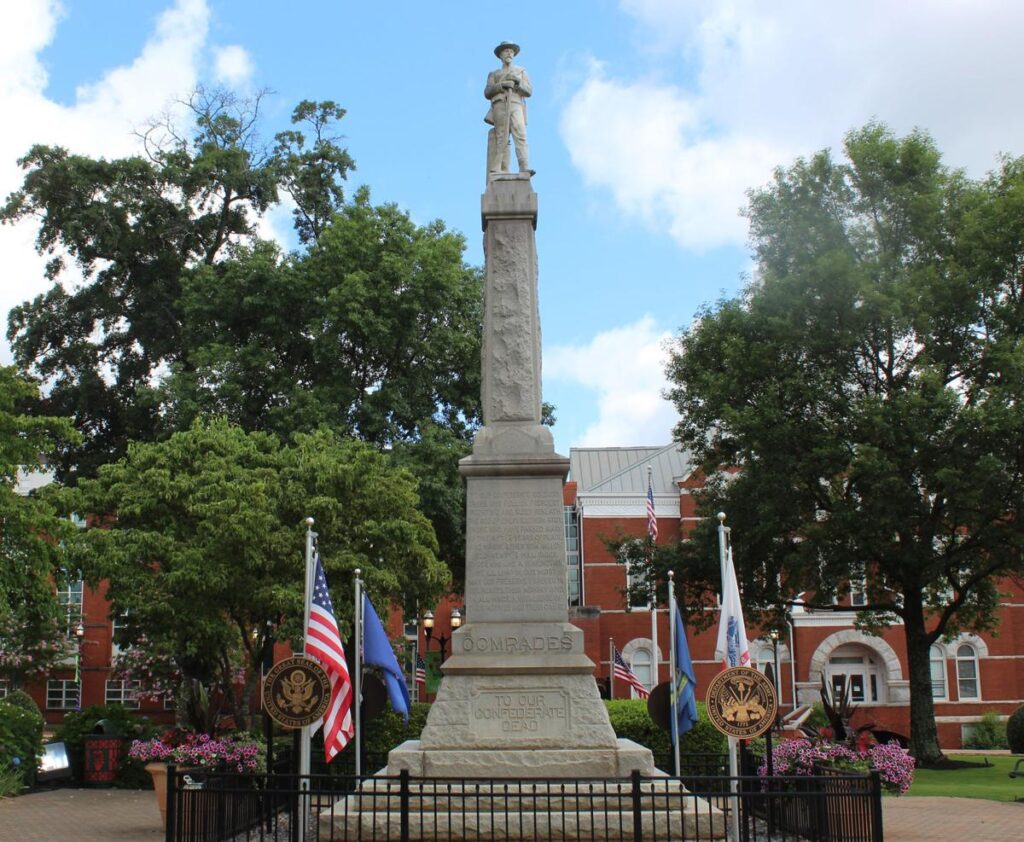
ATLANTA – The Georgia Supreme Court Tuesday upheld the dismissal of lawsuits against two county governments over the removal of Confederate monuments on public property.
The justices ruled that various Sons of Confederate Veterans (SCVs) groups lacked legal standing to bring the suits against Henry and Newton counties because they are not residents of those communities.
At issue in the case were votes by county commissioners in the two counties to remove Confederate monuments from the courthouse square in McDonough and from downtown Covington.
Both votes came during the summer of 2020, shortly after the murder of George Floyd, a Black man, in Minneapolis by a white police officer. Floyd’s killing touched off a nationwide push to remove statues honoring the Confederacy and Confederate leaders.
The SCV groups alleged that the two county commission votes violated a law the General Assembly enacted in 2019 prohibiting the removal, relocation, or desecration of historic monuments located on public property.
Tuesday’s state Supreme Court ruling did not address the merits of the groups’ arguments. Instead, the court declared most of the plaintiffs didn’t have the legal right to sue.
“When a local government owes a legal duty to community stakeholders, the violation of that legal duty constitutes an injury that our case law has recognizing as conferring standing to those stakeholders, even if the plaintiff at issue suffered no individualized injury,” Presiding Justice Nels S.D. Peterson wrote for the court.
“Because the Sons of Confederate Veterans groups have not alleged anything resembling community stakeholder status … they do not have standing.”
But the court did declare one of the Newton County plaintiffs, T. Davis Humphries, is a resident of that county. As a result, the justices reversed a lower court dismissal of her complaint.
However, the court took no position on whether Humphries has legal standing for her claim for damages because the Confederate statue at issue in the Newton County case is still standing.
“Because damages are authorized only for conduct prohibited by the statute, and the statute does not prohibit a vote to remove a monument in the future, Humphries cannot seek damages here,” Peterson wrote.
This story is available through a news partnership with Capitol Beat News Service, a project of the Georgia Press Educational Foundation.